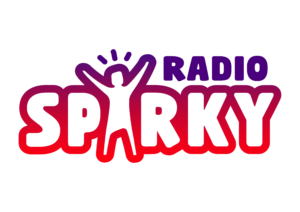World Mental Health Day (10 October) is the international day for global mental health awareness, education, and advocacy against social stigma. This year’s theme is “Mental Health for All”, and we are sharing stories of people that we support that show how important that is. Maggs, a person we support living in one of our 24 hour community support services, shares her story of moving from the criminal justice system into our services.
Hi! My name is Maggs and I would like to share the highs and lows of my discharge from hospital into 24hr support in the community. Before this, I spent ten years in various hospitals around the country. I think I should start from the beginning: I have been in a very low and difficult place for a long time. In 2010 I was in a place I didn’t think I could escape. My family could also see the darkness of that place in my eyes. Ten years on I can now finally accept how mentally and physically poorly I was.
Over the last ten years I have spent time in prison (for my own safety and to give the courts time to be able to apply a 37 hospital order). Once I had that order, I went to my first hospital not expecting that I would be going into a further three hospitals after that.
After being in the hospital, I gained a lot of confidence and accepted the person I used to be.
I was discharged from hospital into the community within a 24hr support housing service. This was alongside another lady who had been in the same hospital as me, so it was good to know someone who lived there too. There were also ten men who lived at the house; however this didn’t affect me even though I have a bad history with men. To be fair they were a good laugh! Eventually my friend moved in to her own flat with support from staff. It was sad to see her go but I was also so happy for her as she had worked hard to get her own flat.
I found it hard after she left, because all I was listening to were ten men bantering, swearing and being inappropriate with what they were saying and the manner they were saying it in. But now when I look back on this I know we all were struggling with mental health problems and everyone deals with these issues in so many different ways.
I know it wasn’t down to the individuals in the house that I had relapsed again, it was because I had put high expectations on myself to mend people who were struggling too.
At this point, I didn’t feel as confident as I had when I left hospital but that was because I wanted to fulfil my dreams of helping others who have been in the same position as me. I thought that if I could help anyone who is struggling with their mental health in any way shape or form, I would be fulfilled. While all this was going on, I had family back home who had been in a bad place too due to watching their own mum try to take her own life so many times. I loved them so so much but I knew that I was in the way of them following their dreams too. So, as I said at the beginning, I was admitted to a further three hospitals over the next five years.
I was at my last hospital for nearly two years and during this stay I developed many skills. These skills were then tested to their limits because I wanted to be a mum, a grandma and be with my family more than I had been. I questioned what would help me find the true Maggs underneath all the heartbreak over the years, and how I would make sense of the last ten years. I really valued the skills I learned during DBT, and I still use them to this day.
So, moving into the community was exciting, happy, scary and emotional for me. I was moving back home to my family, and I was excited as I was able to be a mum again and felt so lucky to be a grandma to seven gorgeous grandchildren. I wasn’t the only person who was emotional about moving into the community, my family were too. They had been waiting for this day for a long time.
Due to Covid-19 I was unable to see the property I was moving to. Two of the staff visited before lockdown to assess me for the accommodation and I was accepted. When I realised I wouldn’t be able to see where I was moving to, I judged the staff that came to visit me who were really lovely and approachable. I felt that I would be okay just to move in. I think my thoughts were to push myself that bit further because I knew I was so far away from the Maggs I was in 2010.
I had also met my care coordinator Kevin and my social worker Lydia. They were both so lovely and approachable too, I knew this was something big and such a positive and an amazing move waiting for me to grab with both hands.
 Welcome to the latest edition of Radio Sparky, the podcast which shines the spotlight on the excellent work happening at Richmond Fellowship.
Welcome to the latest edition of Radio Sparky, the podcast which shines the spotlight on the excellent work happening at Richmond Fellowship.
















